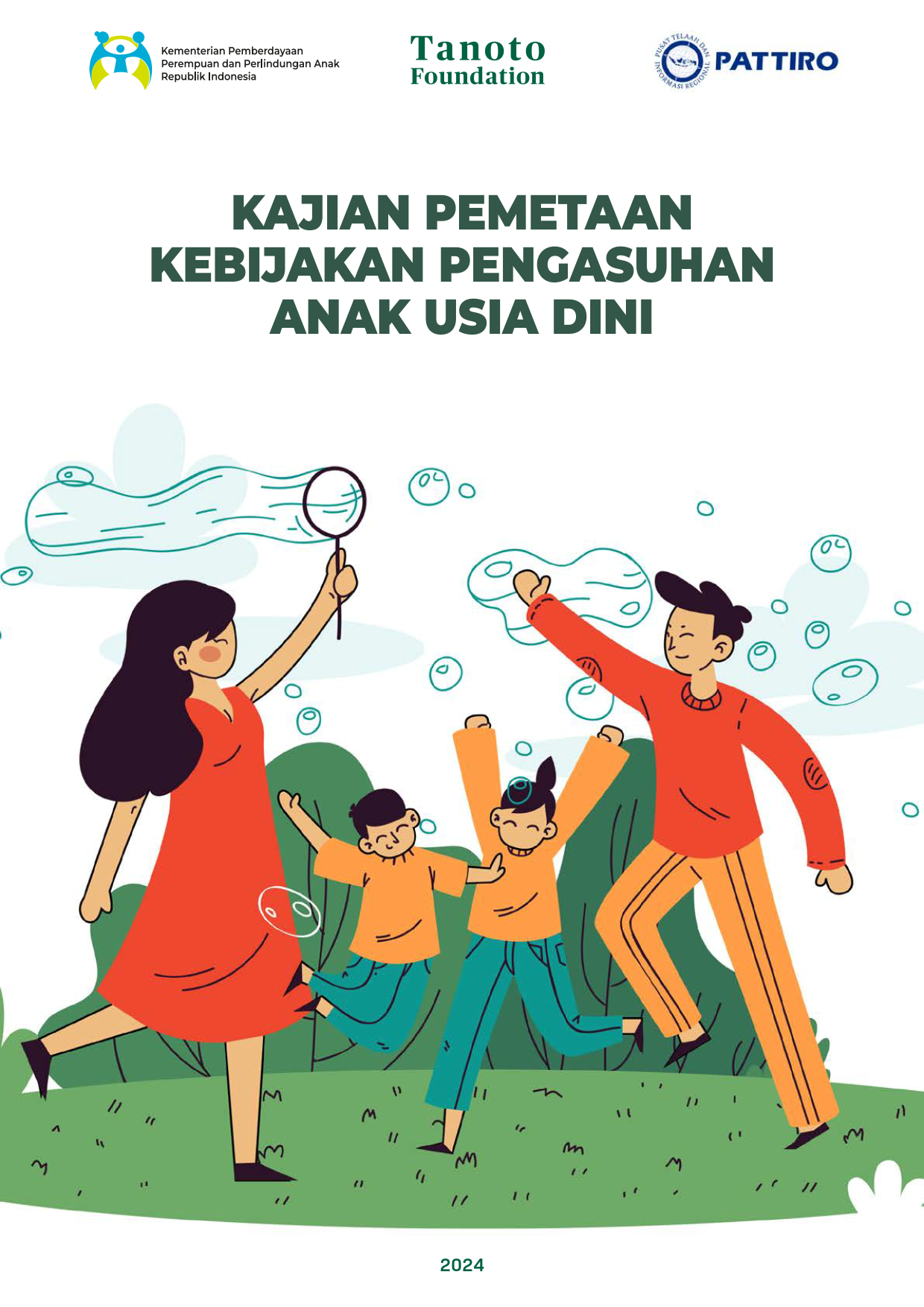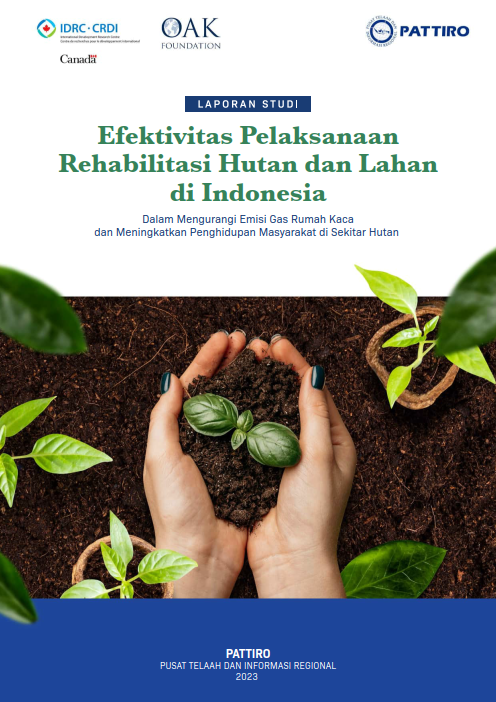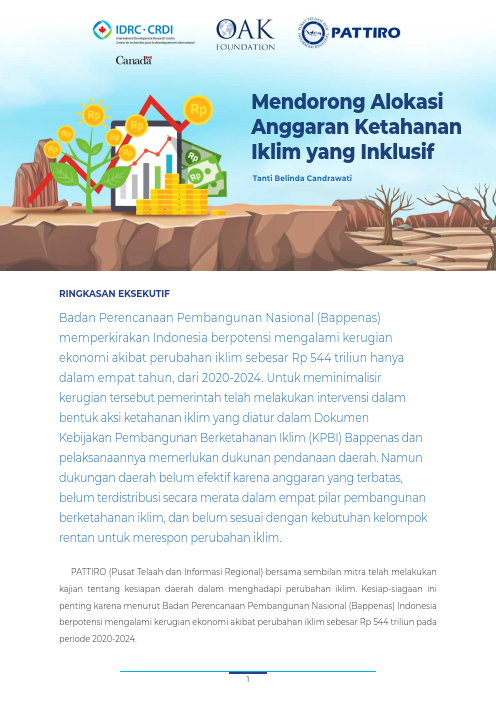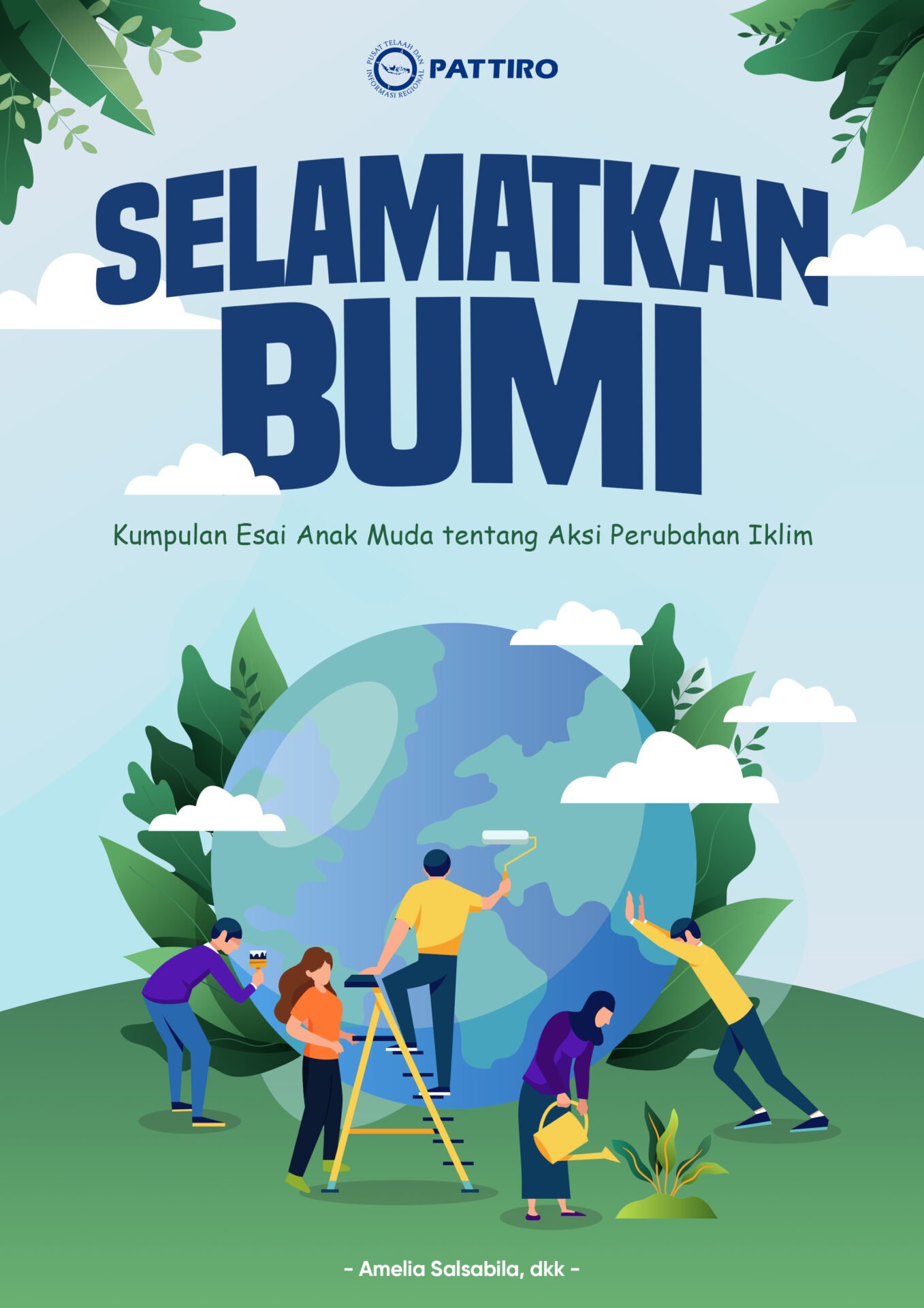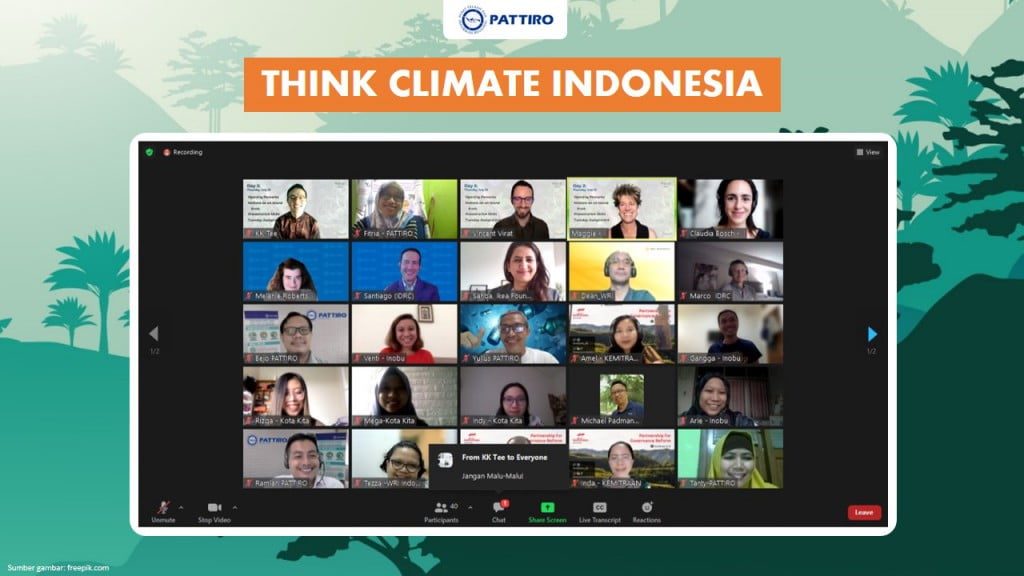
“Various ideas and potentials from institutions in Indonesia that are concerned about climate change actions are important elements of Indonesia’s future. Therefore, it is necessary to align the ideals of the institutions”, said Dr Anindya Chatterjee, the Regional Director of IDRC at the Inception Workshop on the Think Climate Indonesia (TCI) Program on 21 July.
One of these ideas can be implemented through collaborative action by think tank institutions in realizing climate change mitigation efforts in Indonesia. Think tanks have an important role in climate change action through their role in conducting research, formulating policy recommendations for the government and encouraging community involvement in responding to the complex challenges of the current climate change conditions.
This is one of the points that emerged in the Inception Workshop on the Think Climate Indonesia Program, which was held on 21, 22, and 27 July 2021. The online workshop was organized by the International Development Research Center (IDRC) and the OAK Foundation, with partners involved in the program consisting of PATTIRO, Kemitraan, Kota Kita, World Resource Institute (WRI), and Inobu. In addition to introducing the program and objectives to be achieved in the TCI program, the workshop also discussed how to strengthen action and collaboration between partners in implementing future programs.
The Think Climate Indonesia (TCI) program is one of the programs supported by the IDRC and the OAK Foundation for think tanks in Indonesia. Through this program, it is hoped that partner institutions can encourage climate change policy proposals through various research based on evidence.
One of the sessions in this workshop was the presentation of research plans by partners. PATTIRO representative Bejo Untung presented a research plan on the effectiveness of the Forest and Land Rehabilitation (RHL) program in reducing Greenhouse Gas (GHG) emissions and their impact on the community. According to him, RHL is one of the government’s strategies in overcoming critical lands, as well as an effort to achieve Indonesia’s NDC targets. In the 2020-2024 National Medium-Term Development Plan, the Government has set a RHL target of 420,000 ha/year. On the other hand, there are funding opportunities through DBH DR and corrective actions to synergize RHL with social forestry.
In response to this explanation, various positive comments were given by other participants, especially regarding their relevance to the government’s targets in the 2020-2024 National Medium-Term Development Plan. This research is highly relevant, considering that deforestation and land degradation are still happening. Strategic inputs for this research were also conveyed by other institutions, such as the relations with the plan to move the national capital to East Kalimantan, the issue of Social Forestry, and comparative studies with other regions.
The implementation period of the TCI program is three years, starting in April 2021 and ending in October 2023. In general, in the first year of the program, PATTIRO’s activities will focus on increasing the capacity of activists to support the research process. Research activities are planned in the second year with research locations in Jakarta and East Kalimantan, and the third year will see dissemination of research results and public campaigns.
As an illustration of the implementation of the program’s initial workshop, which was held at the end of July, IDRC has compiled a complete report on the implementation of the workshop. This report contains the processes and results obtained during the three-day workshop.
In general, this report presents:
- A brief description of the background, objectives and work to be carried out by the partners;
- Workshop agenda;
- Strategies to build cooperation and initiate collaboration in program implementation;
- Team capacity building related to the skills to deliver presentations effectively;
- Future agenda and steps.
More details about the report can be downloaded below:

